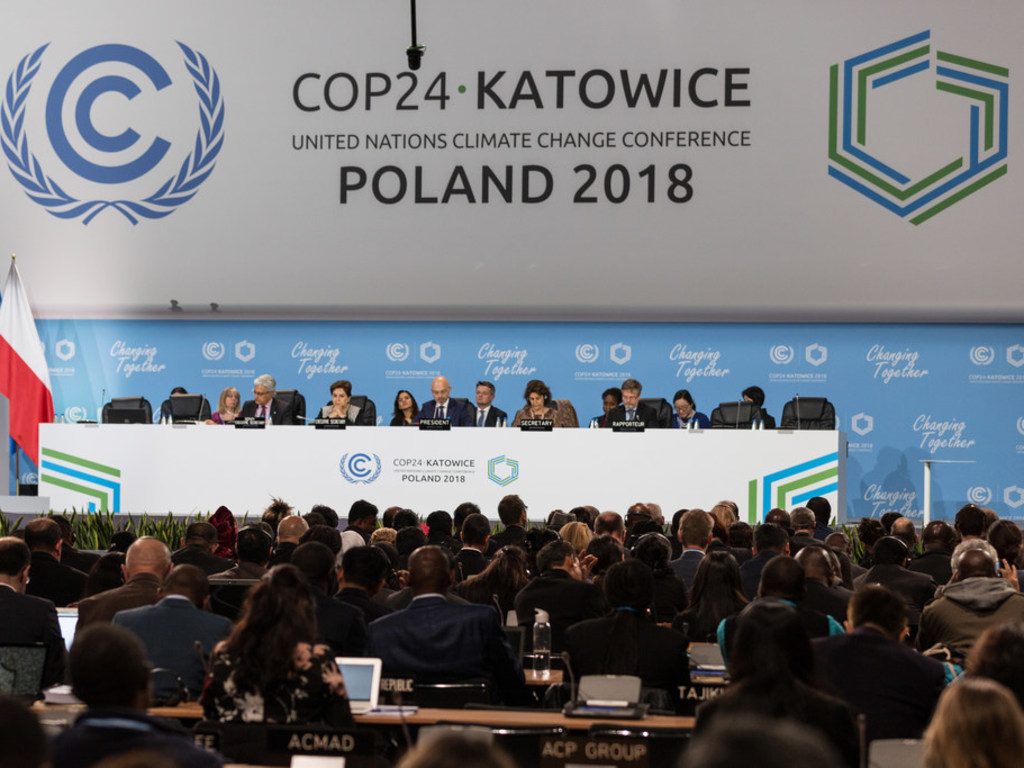
By Kofi Adu Domfeh
COP24 has been described as the most important gathering on climate change since the Paris Agreement was signed in 2015.
The 24th session of the Conference of the Parties (COP24) to the United Nations Framework Convention on Climate Change (UNFCCC) opened on Sunday, December 2 in Katowice, Poland, with the UN climate chief, Patricia Espinosa, urging nations to come up with a set of rules to make the Paris climate deal work.
She has emphasized that the impacts of climate change “have never been worse”.
According to UN Secretary-General, António Guterres, “We are in trouble. We are in deep trouble with climate change. Climate change is running faster than we are and we must catch up sooner rather than later before it is too late”.
The Intergovernmental Panel on Climate Change (IPCC) Special report on 1.5 Degrees should serve a guiding inspiration to the global community that any further delay to drastically cut emissions will not only be ominous to the current and future generations, but also the health of the planet.
In 2017, carbon emissions grew by 1.6 percent after a three-year hiatus.
A leading scientific study has also projected global emissions of carbon dioxide from fossil fuels and industry will rise for the second consecutive year in 2018, by more than 2 percent to a new record, mainly due to sustained growth in oil and gas use.
The Global Carbon Project estimates that CO2 emissions will rise a projected 2.7 percent, with an uncertainty range between 1.8 percent and 3.7 percent.
African civil society, led by the Pan African Climate Justice Alliance (PACJA), is joining the African governments and other stakeholders in underscoring the vital importance of a Paris Work Programme that upholds equity and justice.
The CSOs describe the Katowice Climate Change Conference as critical, “do-or-die” moment whose outcomes will determine whether the world will march towards precipice, or trigger a reversal of the growing global warming threats by laying a solid foundation to cement global cooperation for effective implementation of the Paris Agreement.
PACJA is going into the conference with nine specific demands:
Demand 1: Global warming must be limited way below 1.5 degrees Celsius this century
Demand 2: Adaptation is crucial to protecting and promoting development gains, especially in Africa
Demand 3: Climate Financing should be long term and achieve a balance between mitigation and adaptation support
Demand 4: Capacity building should be enhanced under the Paris Agreement
Demand 5: Loss and damage Parties should commit to full implementation of the Warsaw International Mechanism for Loss and Damage
Demand 6: Technology deployment and transfer should be supported to enhance resilience and low carbon development
Demand 7: Gender agenda should be enhanced in the implementation of the Paris Agreement
Demand 8: Common timeframes and enhancing ambition within the NDC process
Demand 9: Enhanced transparency framework
“We are calling on parties here in Katowice to fresh energy and push the negotiations towards concrete outcomes that will address this grave concern to Africa. The world is watching and the outcome from this COP24 as it will determine whether the Paris Agreement will be a reality or a mere rhetoric,” said Mithika Mwenda, Executive Director of PACJA.
UN Secretary-General, António Guterres, has acknowledged climate change “is already a matter of life and death” for many, people, regions and countries.
He delivered deliver four simple messages at the opening of COP24.
First: science demands a significantly more ambitious response.
Second: the Paris Agreement provides the framework for action, so we must operationalize it.
Third: we have a collective responsibility to invest in averting global climate chaos, to consolidate the financial commitments made in Paris and to assist the most vulnerable communities and nations.
Fourth: climate action offers a compelling path to transform our world for the better.
For African civil society, endless negotiations at COP24 should be viewed as delaying tactics, emphasizing that there is no option B for world leaders to be genuinely committed to the implementation of the various provisions of the Paris Agreement by adopting detailed rules and procedures – otherwise referred to as the ‘rulebook’.










